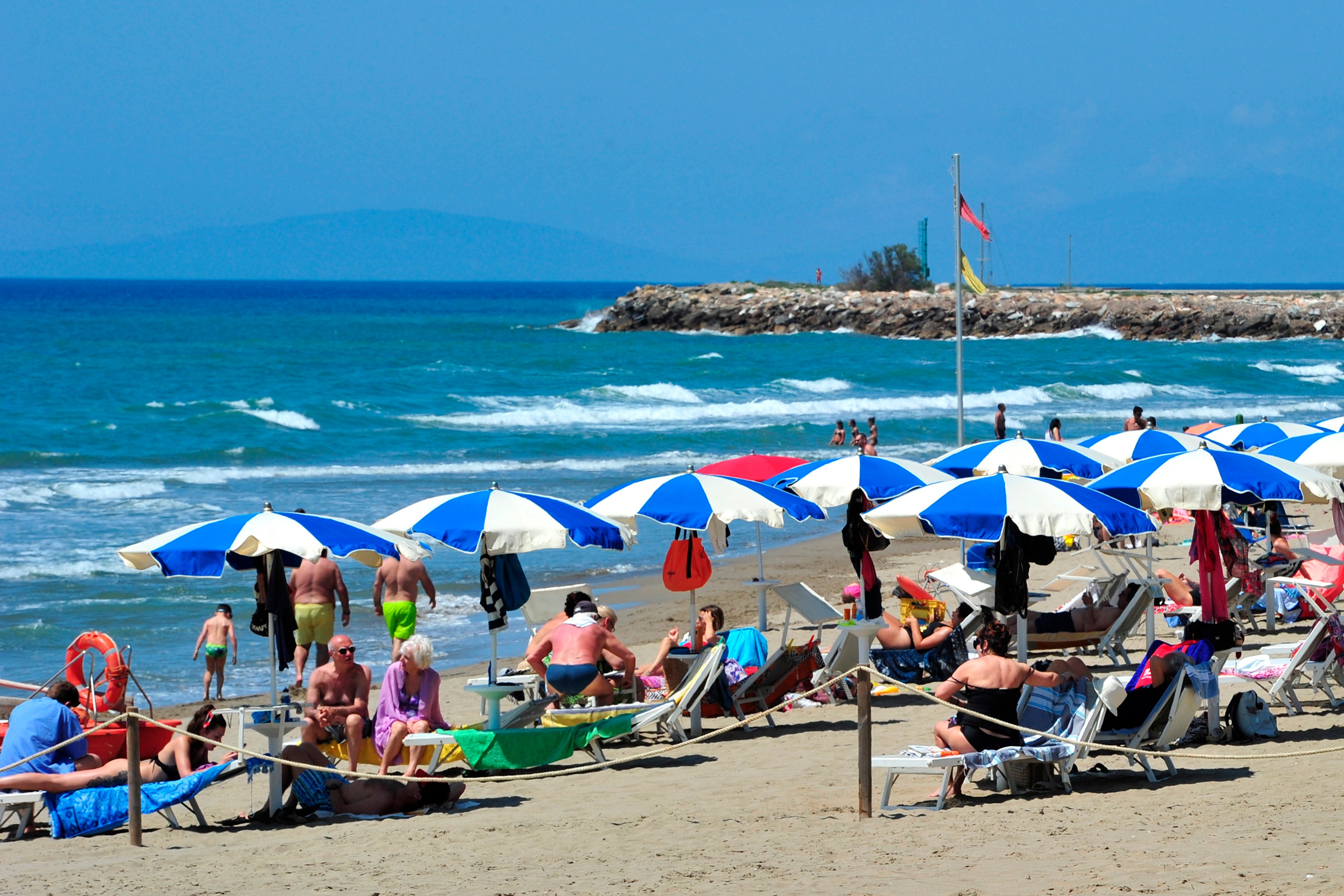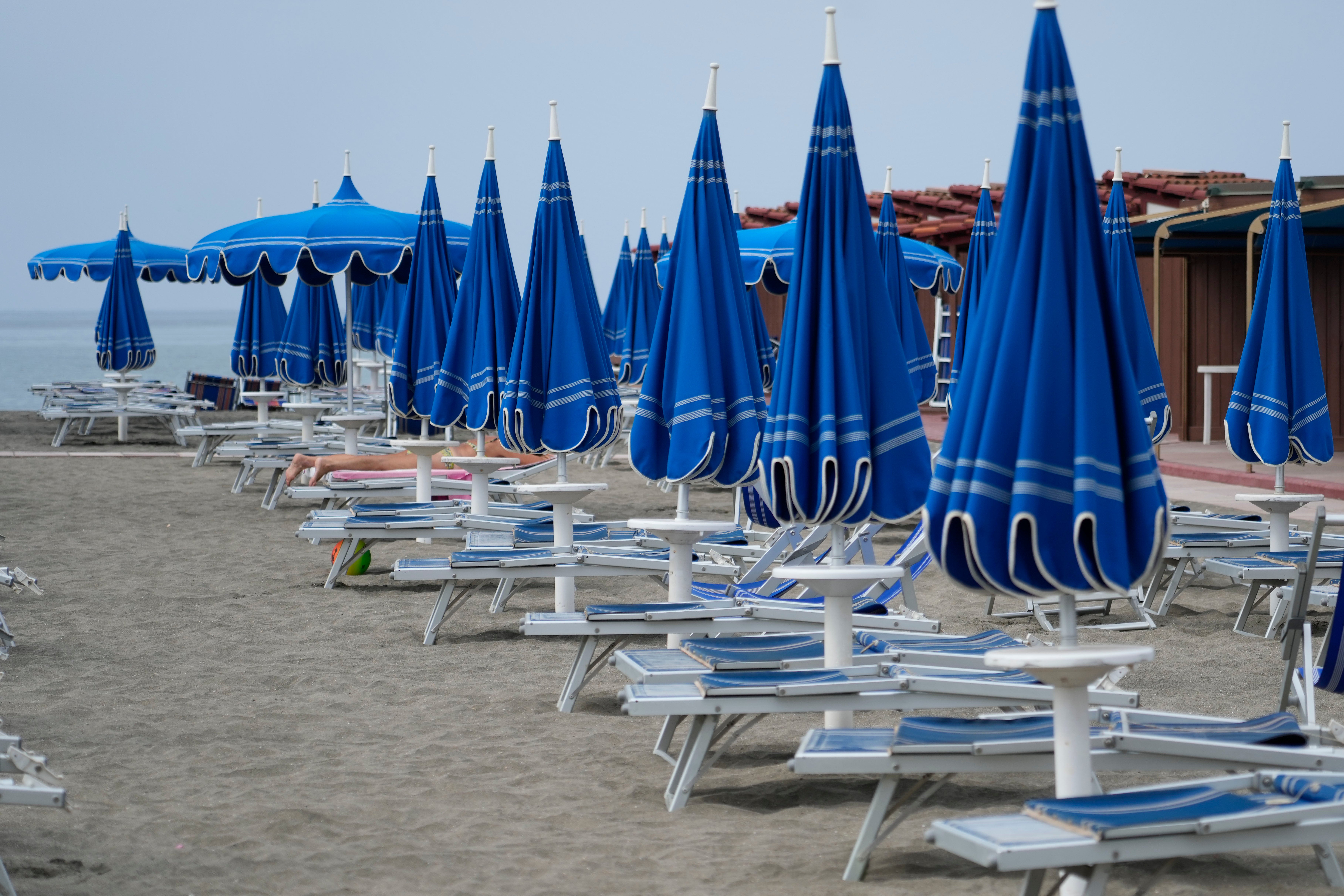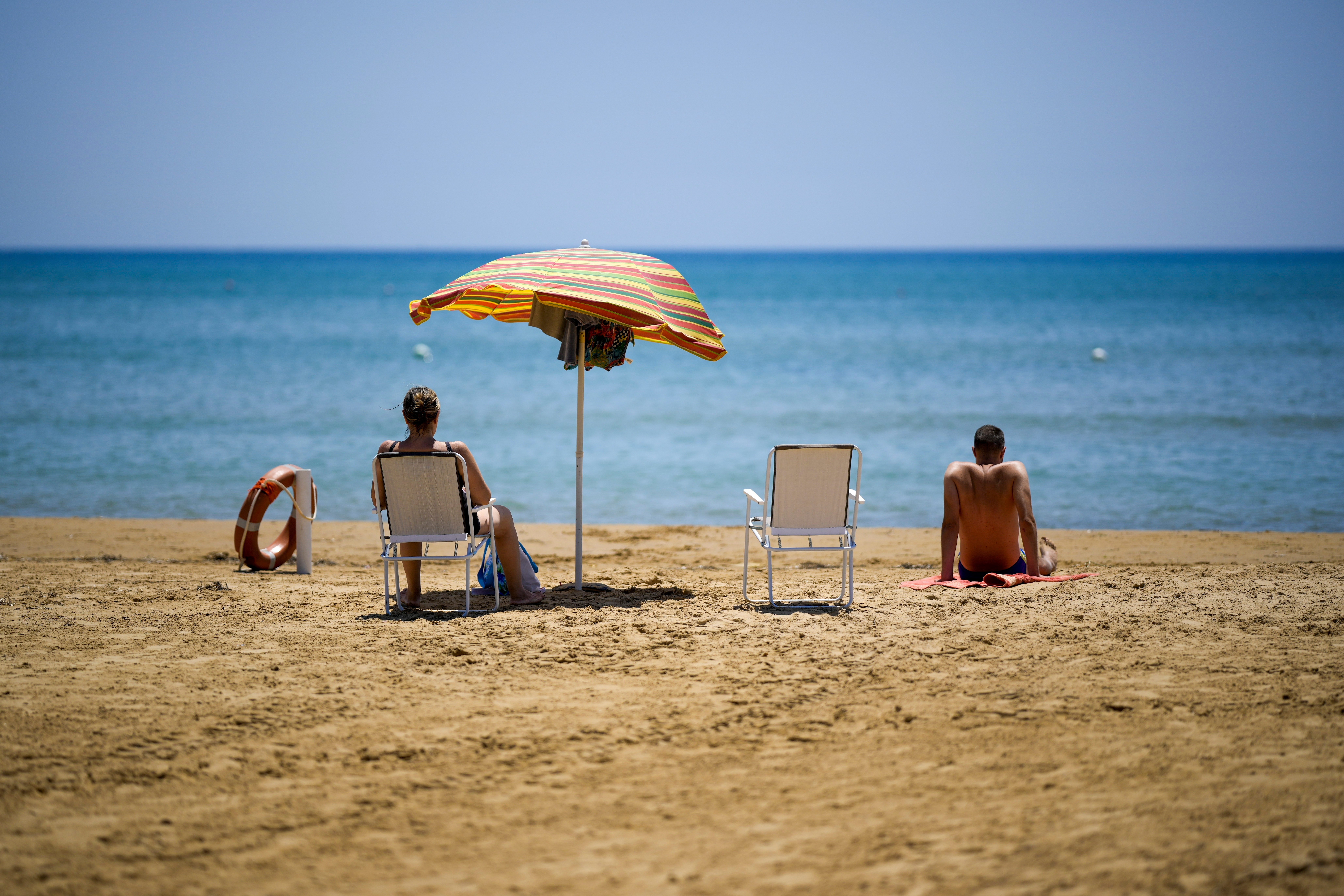Italy’s famed beaches are set to change forever thanks to a new law
Tourists can sometimes pay more than 30 euros a day to rent loungers and umbrellas
Your support helps us to tell the story
From reproductive rights to climate change to Big Tech, The Independent is on the ground when the story is developing. Whether it's investigating the financials of Elon Musk's pro-Trump PAC or producing our latest documentary, 'The A Word', which shines a light on the American women fighting for reproductive rights, we know how important it is to parse out the facts from the messaging.
At such a critical moment in US history, we need reporters on the ground. Your donation allows us to keep sending journalists to speak to both sides of the story.
The Independent is trusted by Americans across the entire political spectrum. And unlike many other quality news outlets, we choose not to lock Americans out of our reporting and analysis with paywalls. We believe quality journalism should be available to everyone, paid for by those who can afford it.
Your support makes all the difference.Italy is set to launch tenders for lucrative contracts to manage bars, restaurants and other facilities on the country’s beaches by June 2027, a draft bill showed on Wednesday.
The move is a long delayed response to a European Union demand for Rome to open the sector to newcomers.
For almost two decades, the European Commission has been locked in a legal tug-of-war with Italy over its beach concession practices, accusing the peninsular nation of lacking transparency and breaching competition rules.

Licences to rent out sun loungers and beach umbrellas are traditionally family-controlled and passed down from one generation to another in Italy. Rival entrepreneurs say they have been unfairly deprived of a slice of a major business.
Under the legislation, which is expected to be discussed on Wednesday by Prime Minister Giorgia Meloni’s cabinet, existing business licences remain valid until September 2027, the draft seen by Reuters showed.
A separate decree to be issued by March 2025 will set out criteria for compensation to be awarded to operators who lose their concessions, the draft said.
The sum to be paid by the newcomer is equal to the value of investments made and not yet amortized at the end of the concession.

The issue remains a flashpoint for tensions within the ruling coalition and the approval of the measures could be delayed, a political source told Reuters.
The European Union ordered Italy to put its 28,000 beach licences up for public tender in 2006, but successive Italian governments of all colours have dragged their feet, despite pressure from Brussels.
Italy’s beach managers on Aug. 9 opened two hours later than normal in parts of the country in protest at the proposals.
They argue that keeping beach concessions in the family keeps costs for beachgoers down and prevents Italy’s 7,500 km (4,660 miles) of coastline from falling into the hands of big chains that might not respect local traditions.
Tourists can sometimes pay more than 30 euros a day to rent loungers and umbrellas. Italy’s beach clubs generated an overall revenue of 2.1 billion euros ($2.29 billion), according to the latest figures published by consultancy Nomisma in 2023.

The government received an average of 102 million euros per year from operating licenses between 2016 and 2020, under the latest data from Italy’s Audit Court.
Economists, however, say beach concession owners have long exploited their privileged position, returning to the Italian state only a tiny portion of their proceeds over the years.
According to the Italian Court of Auditors, from 2016 to 2020 the Italian public administration received around 97 million euros each year from the country’s 12,166 beach concessions. This means that, with an average revenue estimated at 260,000 euros, those businesses have been paying only around 7,600 euros a year for their concessions.
“Competition would advantage everybody, particularly in this area where we’re not talking about private properties, but about public domain that these businesses are getting almost for free,” said economist Pietro Paganini.
Paganini also said that Italian governments of all political orientations have for years protected the owners of beach concessions, as they represent a precious pool of votes.

Join our commenting forum
Join thought-provoking conversations, follow other Independent readers and see their replies
Comments